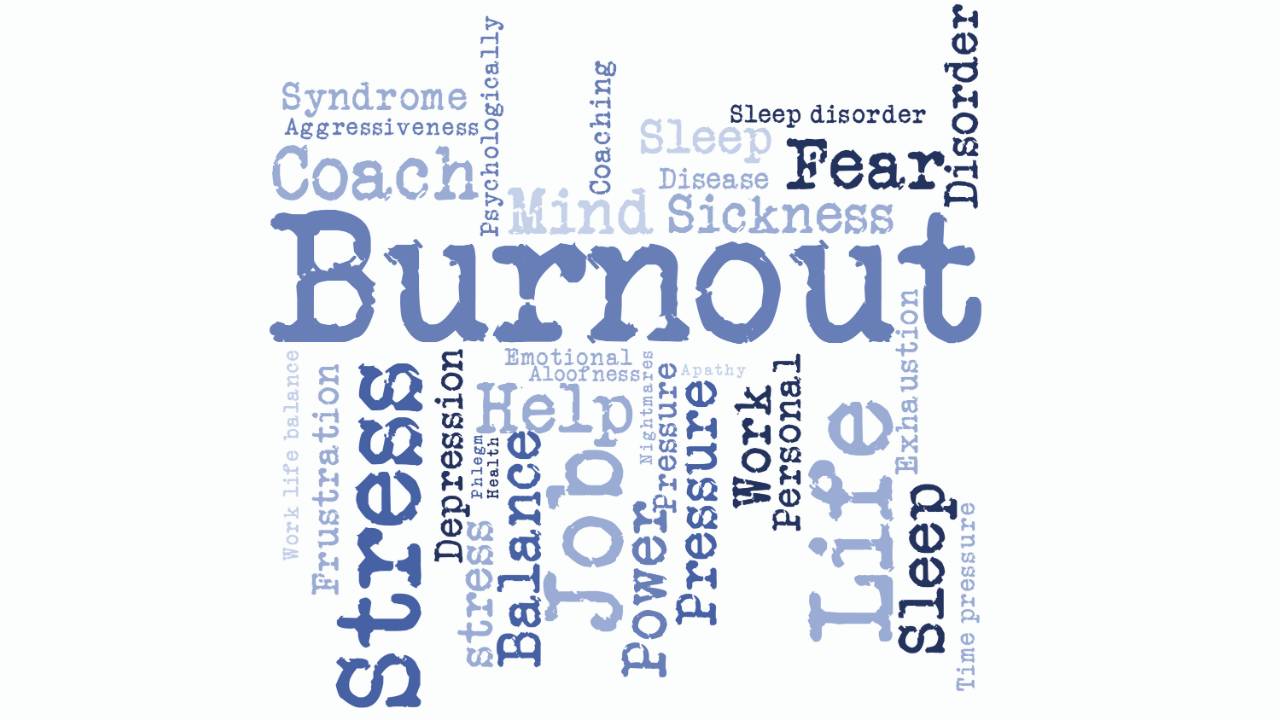PA School and Imposter Syndrome Vol. 3 Environmental causes of imposter syndrome

Thank you for joining me again for the Massey Martin newsletter. I continue our discussion of imposter syndrome in PA school by acknowledging how we might make imposter syndrome worse through bias in our behavior, environment, and systems.
Why environment matters
In the world of education or employment, our environments may encourage people, intentionally or not, to modify themselves to fit a certain mold. While many employers say, “We want you to be yourself,” they may unconsciously encourage a particular version of “yourself” that more closely resembles a traditional norm.
Certainly, as we promote our DEI efforts, we don’t consciously condone forcing people into that norm. Despite earnest efforts, however, we may still unconsciously reward and encourage appearances, behaviors, and beliefs that more closely resemble that traditional viewpoint. Even if the bias is not outright or obvious, minority members will sense differentness in how they are...
PA School and Imposter Syndrome Vol. 2 Who suffers from imposter syndrome?

Welcome back to my series on imposter syndrome as it affects our students in PA education. Today’s newsletter will look at the people who are most likely to fall into this cognitive trap, and why.
Ironically, imposter syndrome tends to affect high-achievers and perfectionists with far greater intensity. It’s one of life’s little jokes that true imposters – people who have attained positions or success dishonestly or unfairly – aren’t nearly as likely to worry about it!
But why does this happen? High-achievers, perfectionists, those people with incredible drive to succeed, also tend to do these things:
- They forget about their hard work: the sheer amount of study, time, thought, and sweat put into accomplishments.
- They don’t celebrate their successes. Give a high achiever an award, a perfect test score, or a medical degree and they’ll fail to acknowledge their achievement as anything particularly special. It wasn’t an...
PA School and Imposter Syndrome Vol. 1 Imposter Syndrome in PA schools

Welcome to another Massey Martin newsletter. Today I’m starting a new series about a topic that affects a high percentage of graduate school students, faculty, and medical professionals. It is imposter syndrome.
We’ve all heard of it – and chances are good that we’ve all suffered it at some point. Who hasn’t had a moment when they thought, “Oh boy, I do not belong here. Everyone is smarter, more qualified, or better trained than me. Any minute now, someone will figure out that I’m a fraud.”
I was the first one in my family to go to college. There was a certain pressure on me to succeed, to make my family proud. At school, I was positive that I was surrounded by erudite people from sophisticated, educated families. I imagined that they knew something I didn’t – if not literal, factual knowledge, then something about behavior or culture or belonging. Sometimes the idea floated through my mind: I don’t belong here,...
Introducing the Success Coach Volume 10 Concluding our Success Coach Series

This newsletter concludes our ten-part review of the role that the Success Coach plays in our Student Success Coaching Model. This process is meant to teach students how to teach themselves, so that they can cope with immediate academic struggles while developing skills that will improve their results in future classes and their future careers. The process doesn’t function without the Success Coach, who is the facilitator to ensure that students get the assistance they need with positivity and empathy, that no student falls through the cracks, and that any student motivated to succeed has every chance to do so.
I’d like to summarize the points of this proven alternative to remediation, built upon 25 years of remediation experience.
- Student Success Coaching is a holistic system. It considers not just study, test-taking skills, and review of the material a student finds difficult, but the entire person of the student, including their schedules, personal...
Introducing the Success Coach Volume 9 A Success Coach Approach to the EORE

Today, we continue our newsletter series on the Success Coach by looking at an example of a protocol we have developed for a specific situation – preparing for the EOR (End of Rotation) Examination. A Success Coach begins by viewing the student holistically, observing their learning style, circumstances, and their specific problem. The coach can then offer a more customized response, rather than cookie-cutter remediation.
This is a brief overview of principles students can follow to prepare for EORE. These principles can be used for both initial preparation and for those who must retake an examination. This plan provides several specific recommendations proven to be effective. Checkoff lists and materials are provided by the Success Coach to the students to assist them in completing these goals.
Self-Study Tutorial: EOR Examination
First, there are some basic principles that are important for every student who is embarking upon a self-directed study plan:
- It is...
Introducing the Success Coach Volume 8 The Success Coach’s Toolbox

Previously we have discussed the needs for training and financing good Success Coaches for your PA program. Having empathetic, flexible, and positive Success Coaches is essential, but without an excellent set of resources, they will be unable to provide sufficient value to students. In this and the next issue of the Massey Martin newsletter, we’ll look at the tools at the Success Coach’s disposal.
Solutions to common student issues
Let’s look at some of the most common concerns that students present in a coaching session. Remember that the solutions still must be individualized to the student. Practice these solutions with students immediately and see how they respond and monitor for improvements. These recommendations can provide the basis for academic improvement plans.
Modules for Success. Our Success Coaching Model also comes with numerous modules, exercises and tools that can be shared with students and referenced when specific problems arise,...
Introducing the Success Coach Volume 7 Financing a Success Coaching Program

Budget is always the first concern for implementing any type of change, improvement, or program! In graduate schools, and in fact in any organization in the world, many beneficial ideas are sidelined when someone asks, “Yes, but how do we pay for it?” and there is no good answer. Successfully presenting a Student Success Coaching Model means justifying the costs to the people who hold the purse strings.
The major expense – in their opinion – will be one of manpower. Someone in the faculty, possibly someone hired specifically for the position, will have to be a paid Success Coach. Said coach must be trained, because as we have shown, there are some psychological practices that these coaches must employ if they hope to be successful.
We have presented a number of newsletters supporting this method. I hope that, by now, I don’t need to re-convince PA program directors that our research on success coaching is solid and the outcomes for programs utilizing...
Introducing the Success Coach Volume 6 Preparing the Success Coach

We have spent the last few newsletters discussing the role of the Success Coach in the Student Success Coaching Model. In today’s issue, I’d like to take a closer look at what kind of training and time are involved in making a great Success Coach. The Success Coach, who acts as more than a tutor, mentor, or advisor (while still incorporating aspects of all those roles), requires a particular type of training.
What makes a great Success Coach?
The literature suggests that most faculty members can assume the role through a combination of faculty development and structured training (which we at Massey Martin, LLC offer – but more on this later). Such training includes simulated student scenarios allowing for practice of skills as well as direct observation and feedback of an experienced coach providing services.
I always recommend that PA school directors choose either faculty who are enthusiastic and excited about the prospect of being Success Coaches, or...
Introducing the Success Coach Volume 5 Coaching Sessions Going Forward

Our previous installment of the Massey Martin newsletter dealt with creating an Action Plan for learners who seek the assistance of a Success Coach. Today’s installment continues this topic by illustrating how subsequent meetings, including the all-important use of feedback, should be implemented to keep up the momentum of the learner’s improvement and academic success.
Ongoing meetings
Keep in mind that while metacognitive techniques can be employed at once in helping a learner, overnight success is seldom an outcome. Determination of the root cause for a learner’s academic struggles may take several sessions. As such, finding the root cause can become part of the action plan, and the action plan itself remains flexible as new information is uncovered.
After the initial session(s) in which the action plan is constructed, future meetings follow this structure:
- A review of the last session, including goals.
- An update on what has occurred since the...
Introducing the Success Coach Volume 4 The Coaching Session and Action Plan

Today we continue our examination of the Success Coaching session between the learner and Success Coach. In our last volume, we approached the importance of the initial session between the parties as a time to gain an understanding of the academic problem, build trust and open communication, and establish the agency of the learner. We looked at a sample of an initial interview between the Success Coach and learner. Now, let’s proceed with the development and implementation of an action plan.
Developing the Action Plan
As we have established, a Success Coach does not apply a “one size fits all” approach to problem solving for students. In the last issue, our sample learner identified herself as a procrastinator (her main source of trouble) who has been able to coast by on last-minute studying and exam “cramming” until the graduate level. While she can develop a study plan, she has trouble sticking to it.
The Success Coach moves onto discovery and...

